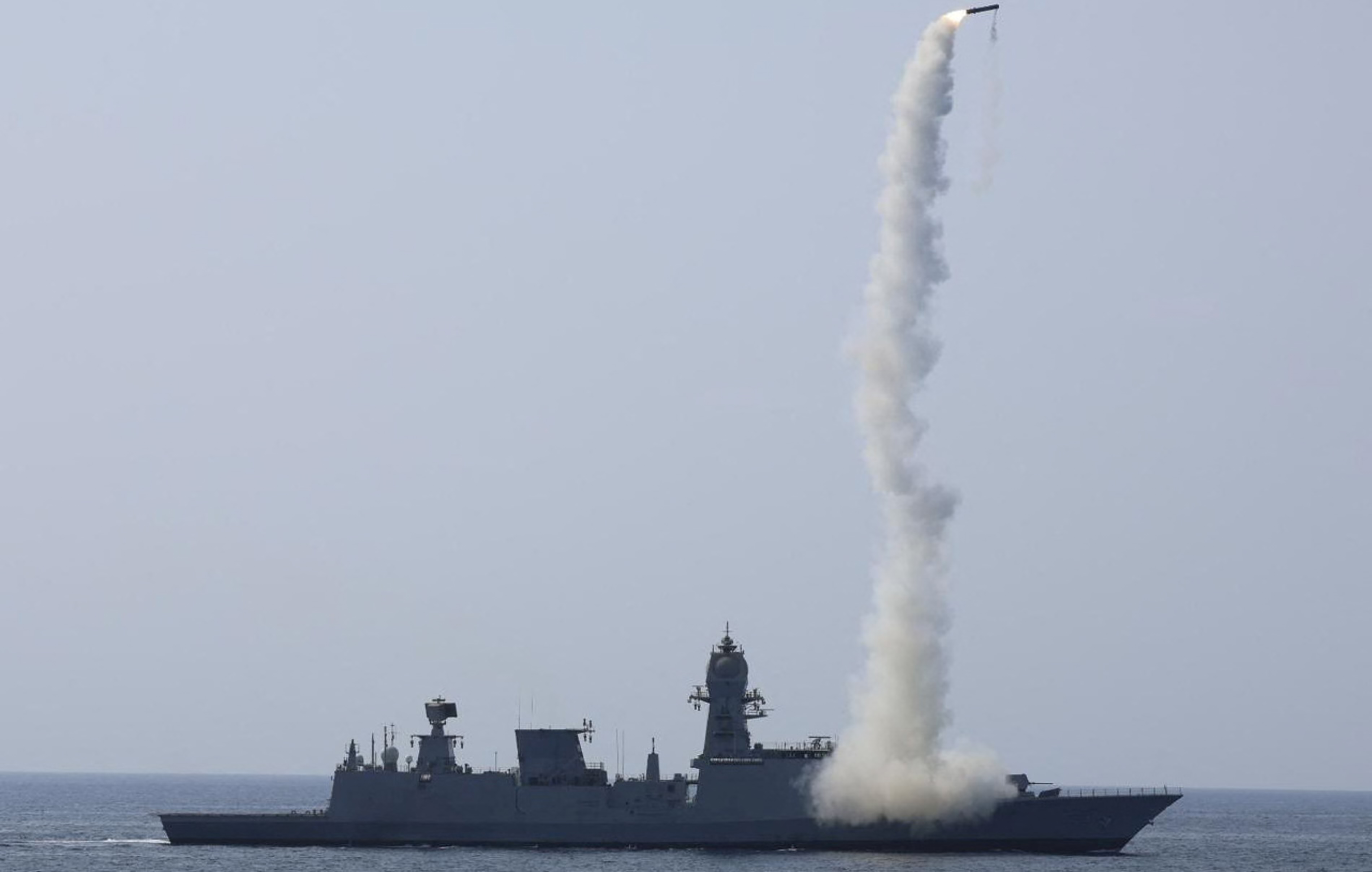India Unleashes Missile Fury After Kashmir Attack – Pakistan Responds with TERRIFYING Nuclear Threat!

NEW DELHI/ISLAMABAD: Nuclear-armed rivals India and Pakistan are teetering on the brink as tensions explode following a brutal terrorist attack in Kashmir! India's navy just showcased its terrifying strike power, test-firing multiple advanced anti-ship missiles in a chilling display of "long-range, precision offensive" capability. This aggressive move comes just days after 26 civilians were horrifically massacred in Indian-administered Kashmir, the deadliest such attack in 25 years.
As the Indian navy flaunted its readiness for war, Prime Minister Narendra Modi, his voice thick with fury, promised a "harsh response," vowing every Indian's blood was "on the boil." He previously swore to hunt attackers "to the ends of the Earth" and turn terrorist hideouts "into dust."
But Pakistan isn't backing down. In a shocking escalation, Pakistani Railway Minister Hanif Abbasi issued a direct nuclear threat, warning India its arsenal of over 130 missiles was "not kept as models" and ominously stating, "these ballistic missiles, all of them are targeted at you."
The chilling rhetoric has ignited fears of a catastrophic confrontation between the two nations, who have already fought three wars, two specifically over the disputed Kashmir region – dubbed the "world's most dangerous place." Experts warn that while all-out war isn't certain, India feels immense pressure to retaliate militarily. Foreign policy analyst Michael Kugelman stated, "some type of military response is quite likely," adding that if India strikes, "Pakistan, not wishing to look weak, would most certainly retaliate."
The risk of miscalculation is terrifyingly high, Kugelman warned, noting, "given that these are nuclear-armed rivals, the stakes are quite high." Pakistan's doctrine allows for tactical nuclear weapons against conventional attacks, while India aims for swift strikes, a clash of strategies experts fear could spiral out of control instantly.
The diplomatic fallout is already severe. India, blaming Pakistan for links to the attack (though providing no public proof), has expelled Pakistani diplomats, cancelled visas, and suspended the critical Indus waters treaty. Pakistan retaliated in kind, booting Indian diplomats, shutting its airspace, cancelling visas, and suspending a key peace agreement. Adding fuel to the fire, India released dam water causing floods in Pakistan-administered Kashmir, prompting Pakistan to declare any water interference an "act of war."
Meanwhile, gunfire continues to erupt along the Kashmir Line of Control for the third straight day. India has issued a media blackout on live military operations, fearing sensitive strategies could be compromised – a move echoing past crises. Inside Kashmir, a massive crackdown is underway, with security forces demolishing homes linked to militants and reportedly detaining or questioning up to 1,500 young men in an effort to dismantle the "terrorism ecosystem."
While Pakistan's Prime Minister offered cooperation with investigators, he simultaneously reiterated that Kashmir remains Pakistan's "jugular vein," leaving the region – and the world – holding its breath as the crisis deepens.




![From Kathmandu to the World: How Excel Students Are Winning Big [Admission Open]](https://nepalaaja.com/img/70194/medium/excel-college-info-eng-nep-2342.jpg)
